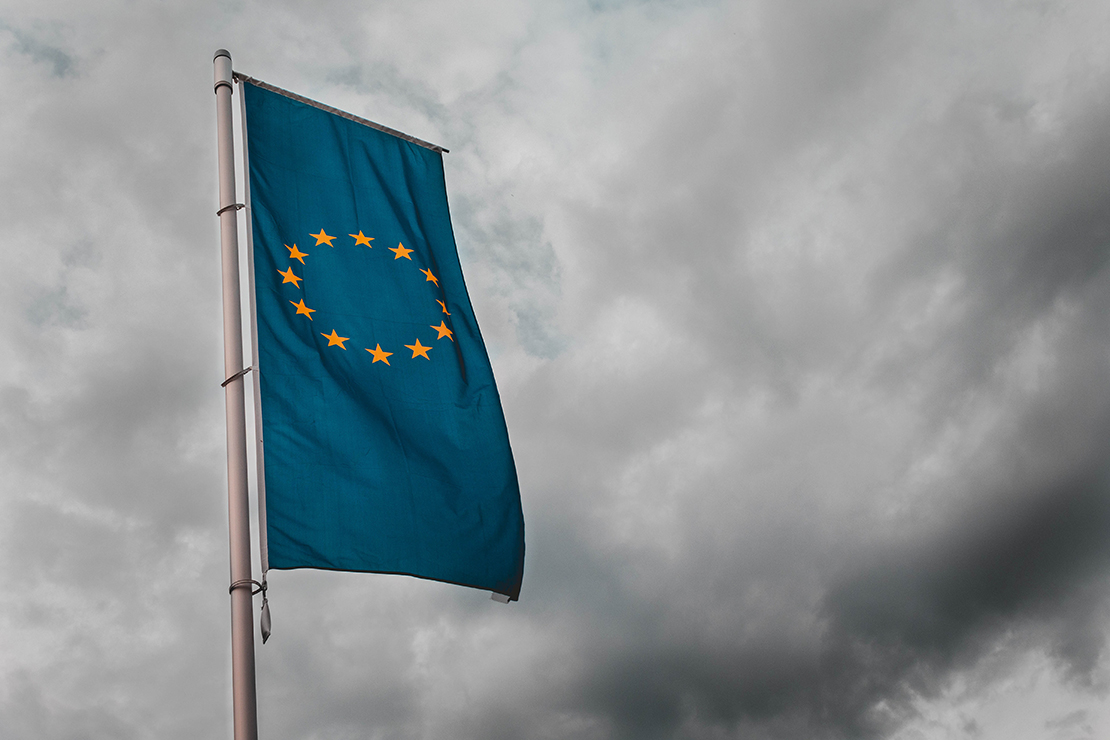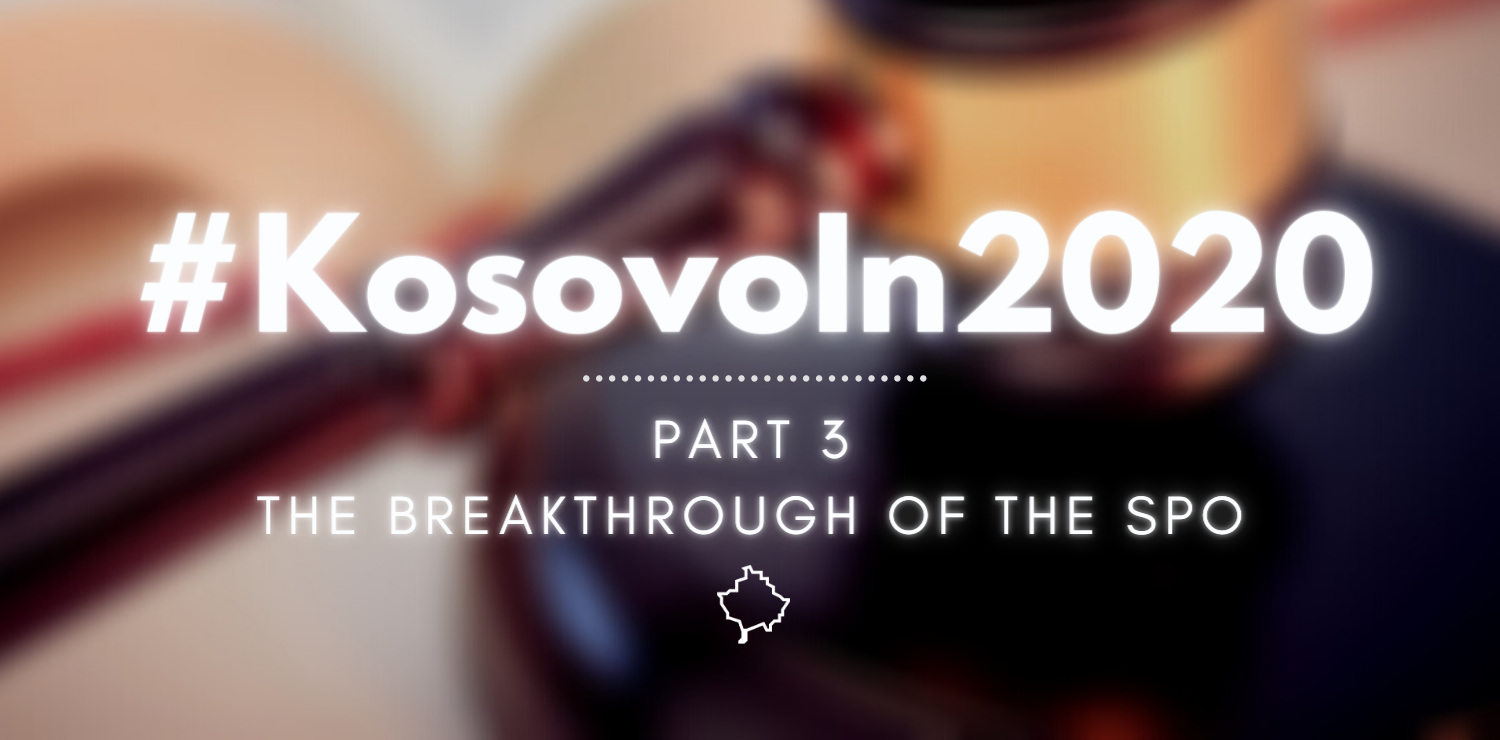Authors

Rreze Hoxha Zhuja
rule of lawSPECIAL EDITION – SERIES OF ESPRESSO INSIGHTS
#KOSOVOin2020: The Breakthrough of the Specialist Prosecutor’s Office
2020 has been a year to remember, especially in Kosovo. In this Espresso.Insights series, GLPS recaps and analyses the main events in the fields of politics, law and society that have affected the country this year and identifies the challenges ahead of 2021. In part 3, Rreze Hoxha reviews the successes and failures of the Kosovo Specialist Chambers and the Specialist Prosecutor’s Office in 2020.
With the specific mandate and jurisdiction over alleged crimes against humanity committed in Kosovo during the war by or against citizens of Kosovo or the Federal Republic of Yugoslavia, the Kosovo Specialist Chambers (KSC) and the Specialist Prosecutor’s Office (SPO) were founded in 2015.Both have been subject to harsh criticism, since no concrete developments known to the public were made. Only in late 2018 and early 2019 the questioning of hundreds of people, including high level officials of Kosovo, all former members of the Kosovo Liberation Army (KLA), began. Following a declaration from the KSC spokesperson in late 2019 announcing that the Chambers’ mandate would continue until all proceedings and investigations were concluded, the KSC and the SPO became very active over 2020.
The KSC’s and the SPO’s main steps forward in 2020
Now that the SPO has started to show the concrete results of its five-year investigative work, one may assume that its mandate is nowhere near the end. In this light, two main developments unraveled in 2020: first, the outspoken support of European Union (EU)Member States and other contributing countries towards the work and mandate of the court; and, second, the concrete undertakings of the SPO, such as filing indictments and arresting suspects.
Support of Member States or contributing countries
Member States and contributing countries showed their support either through the nomination of their own professionals to serve the mission of the KSC, or through funding the activities of the court. In late 2019, the European External Action Service(EEAS) opened a call for nomination of judges inviting all Member States or contributing countries to nominate qualified candidates to serve functions before the court—a clear demonstration that the EU had no intention to end the mandate of the court. The first country to emerge in showing its support in 2020 was Estonia, whose nominee Andres Parmas was appointed prosecutor at the SPO for a five-year period. Nevertheless, Parmas resigned later in March 2020, followed also by British Judge Keith Raynor. In consequence, six new judges from France, Belgium, Ireland, Italy, Norway and Bulgaria ended up joining the 17 already-appointed judges at the KSC, increasing the number to 25 judges in total.
On the other hand, support for the KSC and the SPO also came from countries which backed and funded their activities. In early 2020,a Belgian delegation visited the premises of the KSC and the SPO, in clear endorsement of their mandate. Further support was also provided by Switzerland, which pledged to continue its financial support to the KSC’s outreach activities in Kosovo in 2020 and 2021. Such a grant was used to fund the second phase of the KSC’s Outreach Programme, including outreach activities, cooperation with civil society and journalist engagement.
The continuation of the KSC’s mandate was also reassured through the updating of the list of counsels, featuring the legal representatives eligible to serve before the court and represent suspects, accused, victims or any other person in accordance to the Law on the KCS and the Directive on Counsel. The list contains the names of 174 legal practitioners—later increased to 179—from Kosovo, Serbia and a number of other countries from where the suspects, the accused, and the victims would be able to choose their legal representatives. The publication of the names of the counsels was also a confirmation that the SPO was very serious in its undertakings according to its mandate.
Concrete undertakings of the SPO
In February, a concrete move from the SPO regarding the start of the procedures was put in motion. It formally requested the President of the KSC for the assignment of a pre-trial judge. While this judge had up to six months to review and either confirm or dismiss an indictment, and although only after an indictment is confirmed could its content become public, this was not the case regarding the one filed in June against the President of Kosovo, Hashim Thaçi, where the SPO overcame its own law—arriving as a huge surprise.
Indeed, in late June, the SPO through a press release notified the public that an indictment—which had not yet been confirmed—had been filed against Thaçi and the chairman of the Kosovo Democratic Party (PDK), Kadri Veseli. The SPO decided to prematurely reveal this information due to, it claimed, the repeated efforts by Thaçi and Veseli to obstruct and undermine the work of the court through “a secret campaign to overturn the law creating the Court and otherwise obstruct the work of the Court in an attempt to ensure that they do not face justice”. The SPO did, however, not offer any further details into the alleged efforts of the accused. There seemed to be no clear argument around the SPO’s unorthodox violation of its own law on indictment confidentiality and disclosure.
After a relatively calm year, the months of September, October and November were characterized by a breakthrough in the SPO’s actions. Seven people were arrested, and two confirmed indictments were made available to the public so far: one against Salih Mustafa, former KLA member, and another against Hashim Thaçi, Kadri Veseli, Jakup Krasniqi and Rexhep Selimi.
Besides these indictments, the SPO also had its hands full with issues allegedly relating to the obstruction of justice and offence of intimidation during criminal proceedings. In September, the Liberation Army War Veterans’ Association (OVL) received three packages of KSC files marked confidential. The OVL held three press conferences and informed the public on such events. These files were immediately sequestered by the SPO and, a few days later, the OVL offices were raided. The Head and the Deputy Head of OVL were arrested and are currently under investigation for such alleged crimes.
What should we expect in 2021?
Following the confirmed indictments, the KSC has started the process for victims to apply for participation in the upcoming proceedings. Such an undertaking is expected to ensure that the voices of the victims will be heard throughout the proceedings to come, notifying that the processes are finally to start and that the court is moving forward in pursuing its mandate to ensure fair, impartial and independent proceedings in a safe and secure environment.
The debate regarding the need for a formal extension of the court’s mandate seems to have gotten a clear answer so far. It seems evident that the KSC and the SPO will not end their work prior to fulfilling their substantial mandate related to adjudicating the war crime allegations. Slowly but surely, the KSC and the SPO are undertaking tangible efforts vis-à-vis its mandate—to the extent that 2020 will be remembered for the SPO’s eruption regarding its high-level indictments.
The initial proceedings against those indicted have already begun and are envisaged to continue during 2021. Next year, new indictments are expected to be filed, meaning that the KSC and the SPO will be working in full capacity. The expected indictments and procedures are going to be used as means to convey the message that the court is here to stay despite the criticism.
KOSOVO in 2020: The Breakthrough of the Specialist Prosecutor’s Office

 Download PDF
21/12/2020
Download PDF
21/12/2020Share article
Related Espresso Insights
March 4, 2024
Espresso.Insights
Passport Hangover: What’s next after Spain’s Kosovo breakthrough?

January 16, 2023
Espresso.Insights
Recognized but not supported: Hungary's stance on Kosovo's EU bid

Latest Publications
April 24, 2024
Policy Analysis
Tracking Kosovo's Commitment: Monitoring Adherence to the Venice Commission Rule of Law Checklist in ...
April 8, 2024
Policy Analysis
Reflecting on the Third Year of Kurti II: Setbacks and Achievements in Rule of Law, Public Administr ...
March 22, 2024
Policy Analysis




